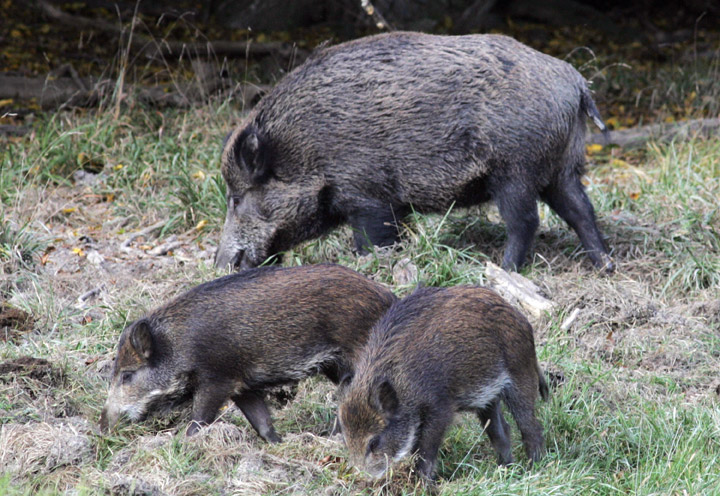SASKATOON – A University of Saskatchewan researcher says the wild boar situation in the province is much worse than previously thought and immediate action is needed to control the beasts.

U of S biologist Ryan Brook and bioscience researcher Floris van Beest of Aarhus University in Denmark conducted a survey of Saskatchewan’s wild boar population.
The study aimed to determine the animals’ distribution in all 296 rural municipalities (RM) via a scientific survey.
They started sending out surveys to RM authorities in December 2012.
From these local reports, they determined there is a high probability that feral boar are present in 70 per cent of Saskatchewan RMs. The animals are likely at low densities.
The infestation started in the 1990s, when boar were imported as an alternative livestock option for farmers. Since then, the animals have adapted to the Saskatchewan environment and are quickly reproducing.
Boars devastate cropland, pose a risk of disease transmission to livestock and can be dangerous to humans.
“In the United States, the impacts are in the billions of dollars from disease, crop damage, livestock harassment, impacts on natural ecosystems and species at risk and attacks on humans,” said Brook.
In 2010, the Saskatchewan Crop Insurance Corporation added feral wild boar to its list of species it provides compensation for crop damage.
The provincial ministry of agriculture recognizes there is a problem with wild boar but has not seen any significant increase in damage claims.
- Budget 2024 failed to spark ‘political reboot’ for Liberals, polling suggests
- Train goes up in flames while rolling through London, Ont. Here’s what we know
- Peel police chief met Sri Lankan officer a court says ‘participated’ in torture
- Wrong remains sent to ‘exhausted’ Canadian family after death on Cuba vacation
The ministry also established the wild boar eradication program in 2009, which funds hunters to deal with boar complaints.
Brook says hunting alone has no real impact on controlling populations but rather disperses the animal into other areas.
In order to be effective, researchers are suggesting aggressive and coordinated action with authorities adopting such tactics as fencing, aerial hunting and on-farm risk management.
“If nothing is done then we risk having more feral boar than people in the province and at that point the costs of taking action are far greater,” said Brook.
This is the first peer-reviewed scientific study of feral wild boar in Canada.


Comments